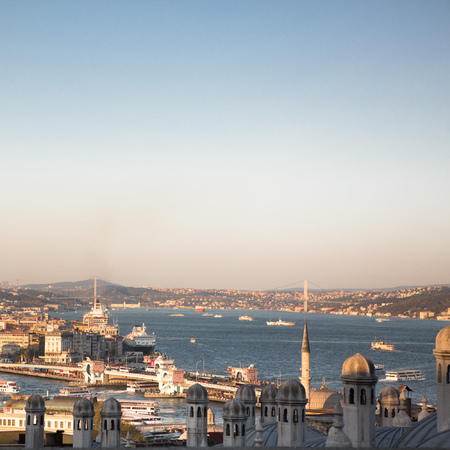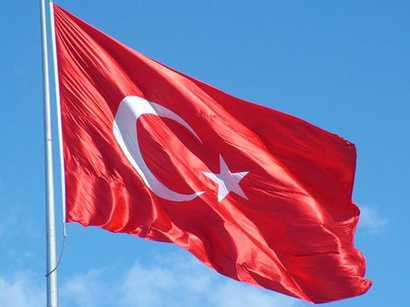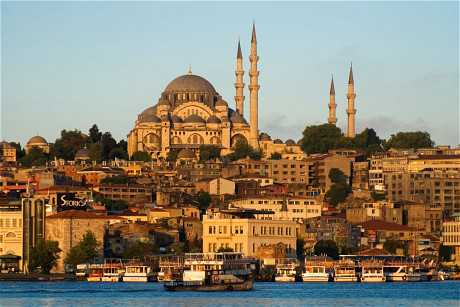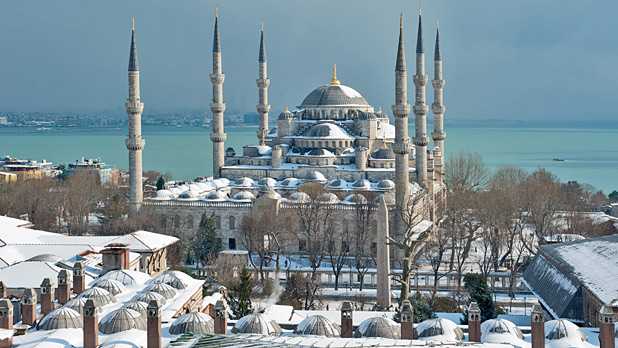On July 30, Turkey’s Constitutional Court decided not to ban the ruling Justice and Development Party (AKP). Critics of the party had claimed that a move to abolish a ban on headscarves at Turkish universities violated the country’s secularist constitution. Steven A. Cook, CFR’s leading expert on Turkey, says that the narrow decision marks a reprieve for Prime Minister Recep Tayyip Erdogan’s government. Cook adds, however, that the case sends a clear warning to the party. If the party regards the Court’s decision as a victory, Cook says, Turkey may find itself “back in the same place sometime in the not so distant future.”
Turkey’s ruling Justice and Development Party (AKP) was under threat of being banned for anti-secular activities, but the Constitutional Court has just ruled narrowly not to ban the party, but only to deprive it of state financing. Can you explain what happened?
Very briefly, what’s happened is the state prosecutor, Abdurrahman Yalcinkaya, petitioned the Constitutional Court to close the ruling Justice and Development Party on the basis that the Justice and Development Party was a center of anti-secular activity. The Turkish Republic is officially a secular republic and any expression of religion in the public sphere is something that is vigorously resisted by a variety of state agencies including the state prosecutor and the military.
The Court actually voted against the Justice and Development Party, 6 to 5, but a seven-vote majority was needed to actually ban the party. The chief judge said the party would be deprived of its state financing for a year, and said this was a “serious warning” to the party. What does all this mean?
This is a great question. Clearly the secularists will be disappointed that the party was not banned, but they are likely to take some comfort in the fact that the AKP was warned. They will also point to the fact that 6 of 11 justices voted against the party, arguing that the party remains a threat to Turkey’s secular order. The situation will likely stabilize if Justice and Development returns to the prudent way it governed from 2002-2007. The case was inherently anti-democratic, but AKP certainly made a number of important mistakes along the way. If, however, the party regards this as victory and does not heed the chief justice’s warning, we may find ourselves back in the same place sometime in the not so distant future.
Was there one particular issue that touched this off?
It’s clear from reading the state prosecutor’s indictment, which runs almost two-hundred pages, that his office had been collecting evidence against the Justice and Development Party since it first came to power in late 2002. But the real trigger for the case, which was filed with the Constitutional Court in March, was legislation that was passed in the Grand National Assembly last year lifting the ban on hijab, or headscarves, in publicly funded universities. Since the 1980 coup d’état and the Constitution of 1983, women were not permitted to wear hijab in publicly funded universities. The Justice and Development Party, along with the Nationalist Movement Party, collaborated on legislation that changed the higher education law allowing women to wear the hijab at publicly funded universities. This was widely regarded to be the trigger that let the state prosecutor file his case in March.
Was this a burning issue for Turkish women, or for just a small number? What actually happened? Did women immediately start wearing the hijab in the university?
Well this is part of an ongoing culture war that plays itself out over and over again in Turkey between arch-secularists, who in the context of Turkish politics regard the hijab as a symbol of reactionary-ism or radicalization and see this as the first step for building a theocratic state in Turkey. Those on the other side of the issue, the Justice and Development Party constituencies of pious Muslims, saw this really as an issue of self-expression and freedom of expression and that women should be able to wear whatever they’d like at public universities. If that’s hijab, that’s fine. If it is midriff, you know, showing one’s belly button—that should be okay as well. So they cast it as an issue of freedom of expression. As a result it garnered actually quite wide support in Turkish society for the lifting of this ban. Now the question being are there more women wearing headscarves now is a matter of debate in Turkey. One study, done by a very prominent Turkish think tank, demonstrated that it’s not that more women are wearing head scarves now since the Justice and Development Party came to power, it’s just that women who wear the headscarf are showing up in places where they had never been found before, such as in places where only the secular elite were found. Now more pious women are showing up as well in chic restaurants in Istanbul, malls, and so on and so forth. So it seems to people that there are more women wearing headscarves than there were before.
Are there any polls on this—what do women say about this?
There has been poll after poll after poll of Turks asking the question whether they want to live under Islamic law. It is a very, very small number that actually do. The Justice and Development Party was very shrewd in casting this as a freedom of expression issue.
So people can wear tank-tops to the universities?
Sure, no problem with that. When we talk about Turkish secularism it’s almost a misnomer. It’s not the secularism that we enjoy here in the United States, where people can wear whatever religious garb they want. In Turkey, the authorities are directly involved in controlling religion. The state is directly involved in engaging surveillance of the public sphere to ensure that religion doesn’t enter the public sphere. And that’s the difference. It’s state control of religion to enforce this principle that religion shouldn’t enter the public sphere.
The headscarf law has already been overturned?
Right. The Constitutional Court a number of weeks ago overturned the lifting of the ban on the headscarf, which some took as an indication of the direction of where the court was leaning when it came to the closure of the Justice and Development Party.
Explain to me why the Justice and Development Party pushed on that particular law when it must have known it would cause a stir among the secularists that had been running the country for all those years. What prompted this? Were they just arrogant? Sometimes when you win an election you think you have a mandate to initiate change.
Well, I think there are two things going on. It’s important to recognize that during their first term in office they did not push on this issue. They won 47 percent of the vote and believed that they had a mandate to push this issue as a pay-off to their core constituency, which wants to see the ban on the headscarf lifted. It’s one of those hot-button issues. The other thing is this is legislation that originated in the Nationalist Movement Party—the conservative, right-wing, ultra-nationalist party, to the right politically of the Justice and Development Party—which shares some constituencies. So in an effort to outmaneuver the Justice and Development Party politically and try to pull in some of the Justice and Development Party’s core constituencies, the Nationalist Movement Party, or MHP, went ahead with this legislation.
It was instigated by the MHP?
It was instigated by the MHP, but the Justice and Development Party immediately signed on because they couldn’t be seen as directly opposing something that its core constituency wanted. So, it was really a political game, and the Justice and Development Party, as shrewd as it has been, was sort of caught off-guard.
Prime Minister Tayyip Erdogan has been a very popular Prime Minister. He’s been respected by the Americans and other Western countries. Is that correct?
Well, he was certainly popular in the summer elections last year. The party won 47 percent of the vote, which is unprecedented in Turkish politics. He is someone who has presided over democratization, economic development, and brought real changes in Turkey. I would have made the argument a year ago that Turkey’s coming into its own, politically, diplomatically, economically, playing a bigger and more constructive role in the Middle East and the Caucasus and Central Asia and so on and so forth. There were significant problems between the United States and Turkey in previous years, primarily over the Iraq war and the Turkish perception that the war in Iraq had a negative effect on Turkey’s national security. But that did not mean that Erdogan was not successful in forging a good personal relationship with President Bush, that the United States and Turkey sought to improve their relations, and relations have been put back on track in the last eight or nine months. Erdogan has demonstrated leadership and been constructive in European circles and Turkey’s been well received throughout Europe as well. And in fact, the party has bought Turkey closer to European Union membership than any previous Turkish government.






